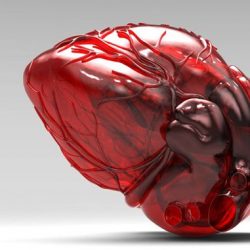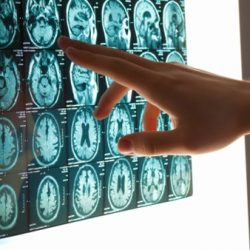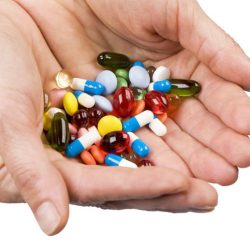For better cardiovascular health, check your gut. Bacteria living in your gut may impact your weight, fat and good cholesterol levels, factors necessary to help maintain a healthy heart, according to new research in Circulation Research, an American Heart Association journal. "Our study provides new evidence that microbes in the gut are strongly linked to the blood level of … [Read more...]
Cardiovascular Health

Cocoa flavanols could help maintain cardiovascular health: A German Study
Two recently published studies in the journals Age and the British Journal of Nutrition (BJN) demonstrate that consuming cocoa flavanols improves cardiovascular function and lessens the burden on the heart that comes with the aging and stiffening of arteries. The studies also provide novel data to indicate that intake of cocoa flavanols reduces the risk of developing … [Read more...]
Struggles with sleep may affect heart disease risk: American Heart Association Study
Are you getting enough quality sleep? Are you sleeping longer than you should? Poor sleep habits may put you at higher risk for early signs of heart disease when compared to those who get adequate, good quality sleep, according to a study published in the American Heart Association journal Arteriosclerosis, Thrombosis and Vascular Biology. "Inadequate sleep is a common … [Read more...]
Diabetic women at 34 percent higher risk of heart attack: Italian Study
New research presented at this year's annual meeting of the European Association for the Study of Diabetes in Stockholm shows that diabetic women are more at risk than diabetic men of having a heart attack and other complications as they age. The study is by Dr Giuseppe Seghieri, Regional Health Agency, Florence, Italy, and colleagues. Previous research has revealed that … [Read more...]
Carbonated drinks linked with out-of-hospital cardiac arrest of cardiac origin
Carbonated beverages are associated with out-of-hospital cardiac arrests of cardiac origin, according to results from the All-Japan Utstein Registry presented for the first time today at ESC Congress. The study in nearly 800,000 patients suggests that limiting consumption of carbonated beverages may be beneficial for health. "Some epidemiologic studies have shown a … [Read more...]
Heart drug may help treat ALS: A Washington University Study
Digoxin, a medication used in the treatment of heart failure, may be adaptable for the treatment of amyotrophic lateral sclerosis (ALS), a progressive, paralyzing disease, suggests new research at Washington University School of Medicine in St. Louis. ALS, also known as Lou Gehrig's disease, destroys the nerve cells that control muscles. This leads to loss of mobility, … [Read more...]
3D Printing Saves Kids’ Hearts
3D printing is used to make car parts, phone cases, and even fashion accessories. The process is also being used successfully in medicine. Now, 3D printing is making heart surgery safer for a growing number of pediatric patients. Three weeks after open heart surgery, Mia Gonzalez was living it up on the playground and the dance stage. At home she holds a plastic replica of … [Read more...]
Mindfulness-based stress reduction helps lower blood pressure: A Study
Blood pressure is effectively lowered by mindfulness-based stress reduction (MBSR) for patients with borderline high blood pressure or "prehypertension," according to new research. The finding is reported in the October issue of Psychosomatic Medicine: Journal of Biobehavioral Medicine, the official journal of the American Psychosomatic Society. The journal is published by … [Read more...]
Older heart patients need personalized preventive care: American Heart Association Study
Strategies to prevent heart attack, stroke and other major cardiac events should be individualized for older adults who should play a role in choosing their therapies, according to an American Heart Association scientific statement published in its journal Circulation. The statement is a comprehensive review of the benefits and risks of medical and lifestyle interventions … [Read more...]
Roller coaster rides trigger stroke in young boy: A Loyola University Study
Riding a couple roller coasters at an amusement park appears to have triggered an unusual stroke in a 4-year-old boy, according to a report in the journal Pediatric Neurology. The sudden acceleration, deceleration and rotational forces on the head and neck likely caused a tear in the boy's carotid artery. This tear, called a dissection, led to formation of a blood clot that … [Read more...]
Three-dimensional anatomic model of a patient’s heart developed: A Study
Congenital heart experts from Spectrum Health Helen DeVos Children's Hospital have successfully integrated two common imaging techniques to produce a three-dimensional anatomic model of a patient's heart. The 3D model printing of patients' hearts has become more common in recent years as part of an emerging, experimental field devoted to enhanced visualization of individual … [Read more...]
Ring and Sling for the Heart
Atrial fibrillation, or Afib, affects more than one million Americans. It’s the most common form of heart arrhythmia and can greatly increase the risk of stroke. Now, doctors are using a minimally invasive procedure known as the “ring and sling” to treat the heart. Bob Hundevadt is a man on the move. As director of security for the Miami Heat, he covers a lot of ground. But … [Read more...]
Amyloid scan of the heart predicts major cardiac events: A Society of Nuclear Medicine Study
Amyloid build-up is commonly talked about in relation to Alzheimer's disease, but amyloidosis can be found throughout the body. An excessive accumulation of these insoluble proteins could cause a heart attack or even death. A new molecular imaging scan of amyloid in the heart could help diagnose the problem, say researchers at the 2015 annual meeting of the Society of Nuclear … [Read more...]
Key protein may affect risk of stroke: A Swedish Study
Studies on mice reveal that a special protein in the brain's tiniest blood vessels may affect the risk of stroke. Peter Carlsson, professor in genetics at the University of Gothenburg, and his research team are publishing new research findings in the journal Developmental Cell about how the blood-brain barrier develops and what makes the capillaries in the brain different from … [Read more...]
Rapid response to kids’ stroke symptoms may speed diagnosis: American Heart Association Study
An emergency room rapid response plan for children can help diagnose stroke symptoms quickly, according to new research in the American Heart Association journal Stroke. "Just as there are rapid response processes for adults with a possible stroke, there should be a rapid response process for children with a possible stroke that includes expedited evaluation and imaging or … [Read more...]
Drinking tea reduces non-cardiovascular mortality by 24 percent: A European Society of Cardiology Study
Drinking tea reduces non-cardiovascular mortality by 24%, reveals a study in 13,000 people presented at ESC Congress by Professor Nicolas Danchin from France. Professor Danchin said: "If you have to choose between tea or coffee it's probably better to drink tea. Coffee and tea are important components of our way of life. Their effects on cardiovascular (CV) health have been … [Read more...]
Toxin-Zapping Treatment for the Heart?
Chelation is a treatment doctors have used for years to remove certain toxins from the body, most often when someone suffers accidental lead poisoning, but for any other treatment, most traditional doctors thought it was a scam or called it “quackery”. A decade long study has now convinced the conventional cardiologist who led it to reconsider chelation for heart … [Read more...]
Link found between autoimmune diseases, medications and dangerous heartbeat condition: A study
Mohamed Boutjdir, PhD, professor of medicine, cell biology, and physiology and pharmacology at SUNY Downstate Medical Center, has led a study with international collaborators identifying the mechanism by which patients with various autoimmune and connective tissue disorders may be at risk for life-threatening cardiac events if they take certain anti-histamine or anti-depressant … [Read more...]
Mediterranean lifestyle may decrease cardiovascular disease by lowering blood triglycerides
Cardiovascular disease remains the No. 1 cause of death in the U.S. Evidence suggests that elevated levels of triglycerides (fats) in the blood after meals, known as postprandial lipemia (PPL), is associated with an increased risk for hardening of the arteries -- a risk factor for cardiovascular disease. Numerous population studies have associated the Mediterranean lifestyle -- … [Read more...]
Stressed young women with heart disease more likely to have reduced blood flow to heart: American Heart Association Study
Young women with stable coronary heart disease are more likely than men to have reduced blood flow to the heart if they're under emotional stress, but not physical stress, according to research presented at the American Heart Association's Scientific Sessions 2014. Compared to men of the same age, when subjected to a mental stress test, women: age 55 and younger had three … [Read more...]
Yoga has potential to reduce risk factors of cardiovascular disease: A European Society of Cardiology Study
There is "promising evidence" that the popular mind-body practice of yoga is beneficial in managing and improving the risk factors associated with cardiovascular disease and is a "potentially effective therapy" for cardiovascular health. Indeed, following a systematic review of 37 randomised controlled trials (which included 2768 subjects), investigators from the Netherlands … [Read more...]
Link found between autoimmune diseases, medications, dangerous heartbeat condition
Mohamed Boutjdir, PhD, professor of medicine, cell biology, and physiology and pharmacology at SUNY Downstate Medical Center, has led a study with international collaborators identifying the mechanism by which patients with various autoimmune and connective tissue disorders may be at risk for life-threatening cardiac events if they take certain anti-histamine or anti-depressant … [Read more...]
Vitamin C related to reduced risk of cardiovascular disease and early death: A University of Copenhagen Study
New research from the University of Copenhagen and Herlev and Gentofte Hospital shows that high vitamin C concentrations in the blood from the intake of fruit and vegetables are associated with a reduced risk of cardiovascular disease and early death. The study, which has just been published in the well known American Journal of Clinical Nutrition, is based on the Copenhagen … [Read more...]
Save Your Heart- Through Your Wrist!
Every year, one million Americans undergo a procedure called angioplasty. Doctors insert a catheter with a stent into a patient’s artery to open blockages near their heart. Now, a new study may have cardiologists rethinking their approach and for some patients, an easier recovery may be all in the wrist. Judy Whipkey told Ivanhoe, “Morgan Ann is four and Harper Grace, she’ll … [Read more...]
Genes have no link between migraine and heart disease: The American Academy of Neurology Study
A new study suggests that genes may not be to blame for the increased risk of heart disease some studies have shown in people with migraine, especially those with migraine with aura. The research is published during Headache/Migraine Awareness Month in the inaugural issue of the journal Neurology® Genetics, an open access, or free to the public, online-only, peer-reviewed … [Read more...]
Low heart rate linked to sexual dysfunction in women: A Study
Chances are good that women with a low heart rate variability also suffer from sexual dysfunction. That's the finding from a study led by Amelia Stanton of The University of Texas at Austin in the US published in Springer's journal Applied Psychophysiology and Biofeedback. Heart rate variability refers to differences in the length of time between consecutive heartbeats. It … [Read more...]
Cardio benefits of exercise: A Brown University Study
Everyone knows that exercise generally helps the cardiovascular system, but much remains unknown about how the benefits arise, and what to expect in different people who exercise to improve their health. To gain a more precise understanding of how exercise improves health and whom it helps most, researchers analyzed the results of 160 randomized clinical trials with nearly … [Read more...]
Road traffic noise linked to increased strokes and deaths: A Study
A study has established that road traffic noise linked to increased strokes and deaths. Living in an area with noisy road traffic may reduce life expectancy, according to new research published in the European Heart Journal. The findings suggest a link between long-term exposure to road traffic noise and deaths, as well as a greater risk of stroke, particularly in the elderly. … [Read more...]
New Treatments for Cardiovascular Disease
New treatments for cardiovascular disease have been found by the scientists. In what may be a major leap forward in the quest for new treatments of the most common form of cardiovascular disease, scientists at Johns Hopkins report they have found a way to halt and reverse the progression of atherosclerosis in rodents by loading microscopic nanoparticles with a chemical that … [Read more...]
Yoga may help stroke survivors improve balance: An American Heart Association Study
Group yoga can improve balance in stroke survivors who no longer receive rehabilitative care, according to new research in the American Heart Association journal Stroke. In a small pilot study, researchers tested the potential benefits of yoga among chronic stroke survivors -- those whose stroke occurred more than six months earlier. "For people with chronic stroke, … [Read more...]
- « Previous Page
- 1
- …
- 7
- 8
- 9
- 10
- 11
- …
- 35
- Next Page »




























